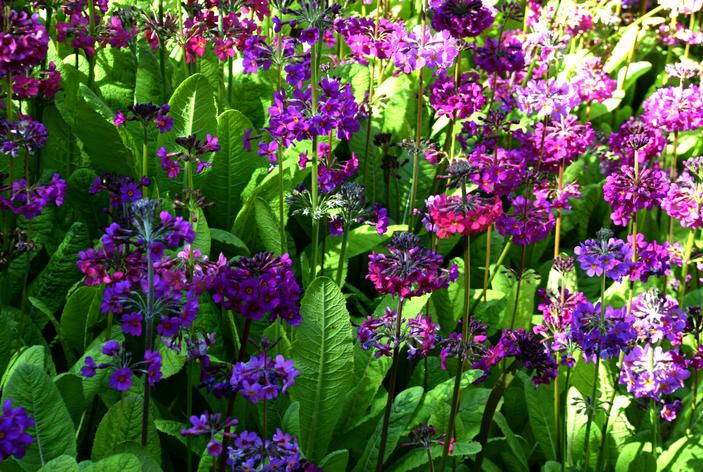Bee’s Primrose
(Primula beesiana)
Bee’s Primrose (Primula beesiana)
/
/

Krzysztof Golik
CC BY-SA 4.0
Image By:
Krzysztof Golik
Recorded By:
Copyright:
CC BY-SA 4.0
Copyright Notice:
Photo by: Krzysztof Golik | License Type: CC BY-SA 4.0 | License URL: https://creativecommons.org/licenses/by-sa/4.0 | Uploader: Tournasol7 | Publisher: Wikipedia Commons











Estimated Native Range
Summary
Primula beesiana, commonly known as Bee’s Primrose, is a semi-deciduous perennial herb that is native to moist meadows and stream banks in South-Central China and Myanmar. It typically grows to a height and width of 1-2 feet. The plant features tiered whorls of bell-shaped flowers, which are a striking purple-pink with a yellow eye, blooming in early to mid-summer. These flowers are arranged in tiers above the foliage, giving it the appearance of a candelabra, hence its association with the group of candelabra primulas. Bee’s Primrose is valued for its unique floral structure and vibrant color, which can add visual interest to shady garden areas.
Bee’s Primrose is ideal for damp, shady garden spots and is often used around ponds or in bog gardens where its moisture requirements can be naturally met. It prefers part shade to full shade and consistently moist soil with good organic content. While it requires medium amounts of water, it is important to ensure that the soil has adequate drainage to prevent root rot. This species has been recognized with the Royal Horticultural Society’s Award of Garden Merit, indicating its reliability and performance in gardens. Care should be taken to protect it from slugs and snails, which can damage the foliage.CC BY-SA 4.0
Bee’s Primrose is ideal for damp, shady garden spots and is often used around ponds or in bog gardens where its moisture requirements can be naturally met. It prefers part shade to full shade and consistently moist soil with good organic content. While it requires medium amounts of water, it is important to ensure that the soil has adequate drainage to prevent root rot. This species has been recognized with the Royal Horticultural Society’s Award of Garden Merit, indicating its reliability and performance in gardens. Care should be taken to protect it from slugs and snails, which can damage the foliage.CC BY-SA 4.0
Plant Description
- Plant Type: Herb
- Height: 1-2 feet
- Width: 1-2 feet
- Growth Rate: Moderate
- Flower Color: Purple
- Flowering Season: Summer
- Leaf Retention: Semi-Deciduous
Growth Requirements
- Sun: Part Shade, Full Shade
- Water: Medium
- Drainage: Slow
Common Uses
Bee Garden, Bird Garden, Butterfly Garden, Deer Resistant, Hummingbird Garden, Rabbit Resistant, Showy Flowers
Natural Habitat
Moist meadows and stream banks in South-Central China and Myanmar
Other Names
Common Names: Candelabra Primrose
Scientific Names: , Primula beesiana, Primula bulleyana subsp. beesiana, Primula burmanica, Primula leucantha, Aleuritia beesiana, Aleuritia burmanica,
GBIF Accepted Name: Primula bulleyana subsp. beesiana (Forrest) A.J.Richards